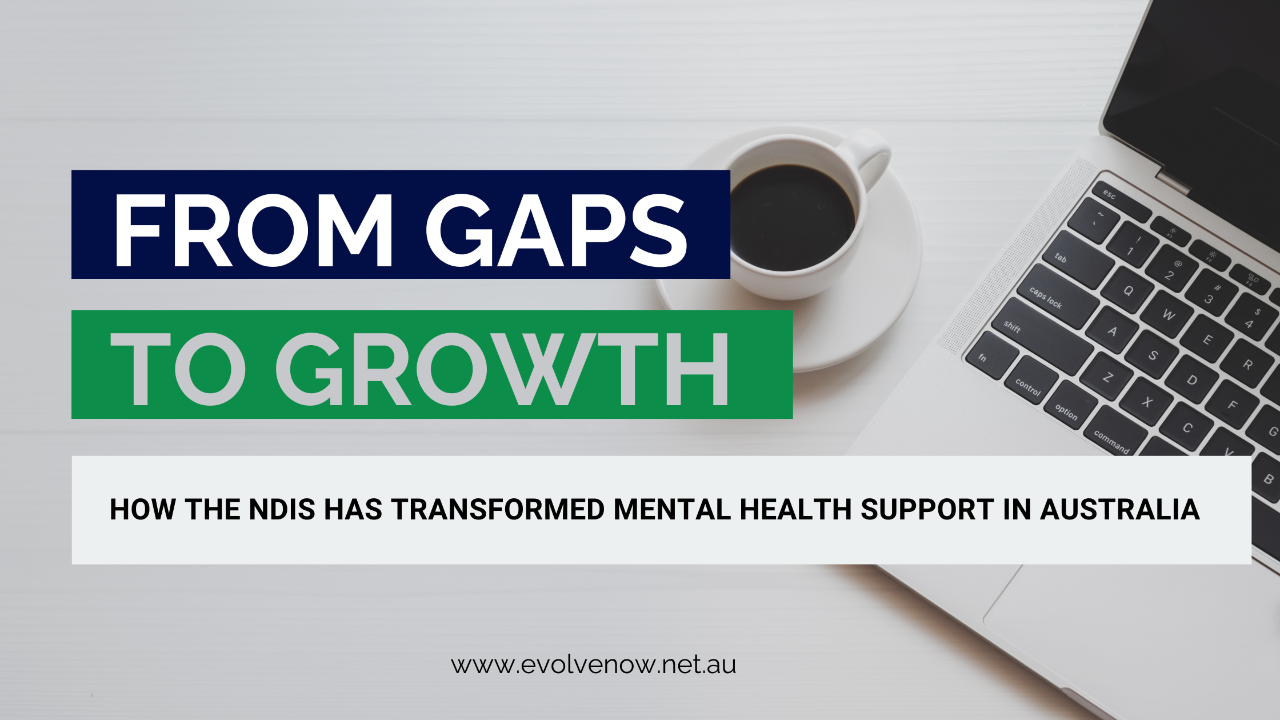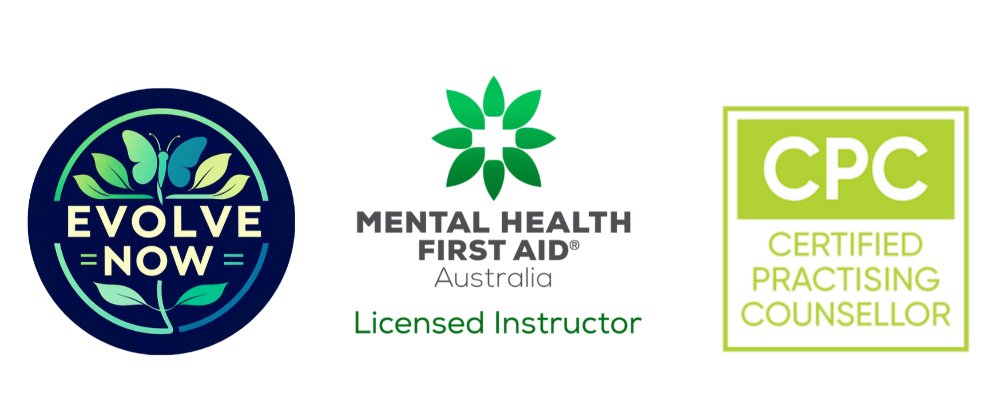
From Gaps to Growth: How the NDIS has Transformed Mental Health Support in Australia
Jul 07, 2025As a mental health professional with over two decades of experience in Australia’s mental health sector, I’ve witnessed firsthand the evolution of how we support people living with psychosocial disability. One of the most transformative changes has been the introduction of the National Disability Insurance Scheme (NDIS).
Before the NDIS, mental health support was fragmented, underfunded, and often inaccessible for those who needed it most. While challenges remain, the NDIS has made significant strides in how we understand, recognize, and respond to mental health disability.
Before the NDIS: A Fragmented and Unequal System
Prior to the rollout of the NDIS, mental health services operated within a patchwork of short-term state and federal programs. These were often inconsistent, lacked cohesion, and left individuals vulnerable when funding cycles ended.
Access to care was largely determined by where a person lived, creating a “postcode lottery.” People with complex and enduring mental health conditions were frequently excluded from disability services, simply because their condition wasn’t always recognized as a permanent disability.
Even more concerning was the lack of individual voice and choice. Decisions about treatment, support workers, or daily activities were often made by providers, with minimal involvement from the person receiving the care.
The NDIS Era: A Shift Toward Person-Centered, Long-Term Support
The introduction of the NDIS marked a turning point in Australia’s approach to psychosocial disability. For the first time, conditions such as schizophrenia, bipolar disorder, severe depression, and complex PTSD were formally recognized as disabilities requiring long-term, individualized support.
This shift was not only policy-driven—it acknowledged the lived experience of thousands of Australians navigating mental health challenges.
Key Improvements the NDIS Has Delivered:
✅ Individualised Funding & Choice
Participants now receive personalised support plans tailored to their unique goals—whether it’s employment, education, or independent living. This autonomy promotes dignity, engagement, and better outcomes.
✅ Holistic and Consistent Support
Unlike previous short-term models, NDIS funding is ongoing. This consistency is crucial for people living with chronic mental health conditions who require stable, long-term care.
✅ Access to Allied Health Professionals
Participants can now access psychologists, occupational therapists, social workers, and recovery coaches—supporting both clinical and functional recovery in everyday life.
✅ Emphasis on Recovery-Oriented Practice
The NDIS has embedded principles of recovery into its framework—focusing not just on symptom management, but on hope, inclusion, and empowerment.
What Still Needs Work
Despite progress, challenges persist. Navigating the NDIS can be daunting, especially for those in crisis or facing homelessness. Proving the functional impact of a mental health condition often requires complex documentation—and some people fall through the cracks.
Workforce capacity is another pressing issue. In many regions, there simply aren’t enough skilled professionals to meet demand, and support workers often enter the sector with little or no mental health training.
Moving Forward: We Need a Skilled and Trauma-Informed Workforce
While the NDIS provides the framework, its success depends heavily on the people who deliver the care. And in mental health, that care must be trauma-informed, recovery-focused, and responsive to complexity.
That’s why Mental Health First Aid (MHFA) training is so essential. It empowers support workers with the tools to:
-
Recognize early signs of mental health distress
-
Respond with empathy and appropriate strategies
-
De-escalate crises and connect people to professional help
This kind of training not only improves participant outcomes but protects staff wellbeing, builds trust, and ensures the NDIS vision is delivered in practice—not just on paper.
Conclusion: The NDIS Has Changed Lives—Now Let’s Strengthen Its Foundationr Team With MHFA Training
A strong, safe support system begins with skilled, confident workers. At Evolve Now, we offer accredited Mental Health First Aid (MHFA) training specifically designed for NDIS support providers.
Whether you're leading a team or working on the frontline, our training gives you the tools to respond to mental health challenges with knowledge, compassion, and confidence.
Explore our MHFA training options and help your team create real change—one person, one conversation at a time.
Ready to equip your team with MHFA training?
Stay in the Loop!
Be the first to get tips, tools, and training updates to build a mentally healthy workforce.
Don't worry, your information will not be shared.
We hate SPAM. We will never sell your information, for any reason.

